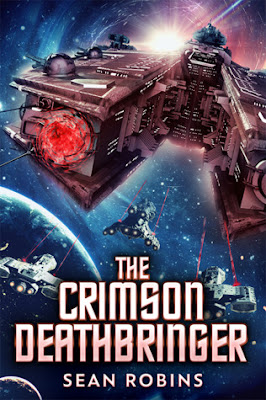Jeremy L. Jones, The Cynical Utopian
So let's get this out of the way. This might come as kind of a shock, especially to those of you that know me, but I have a bit of a cynical side.
....
....
Don't mind me, I'm just giving you time to let the shock wear off.
....
Good? Okay.
It's not that I'm completely devoid of hope for my species, it's just that the distance between where we are and where we have to go as a global society often seems insurmountable for a society of semi-enlightened apes with smartphones.
In fact, a good friend of mine once said to me, "Jeremy, I've got your political affiliation figured out. You are a cynical utopian."
To this day, I have yet to have anyone provide a better encapsulation of my political views.
So what does that have to do with this chapter? Well, in the aftermath of the battle, the whole story behind the Perfiduloi and Urbanoi starts to unfold. Hitherto, I wanted the forest people to feel like a kind of shadowy force. Their motives are not quite understood yet and neither are their capabilities. But in this chapter, I wanted the reader to get this sinking feeling that our heroes might be backing the wrong horse, so to speak.
I don't remember who said it... or exactly how they said it, but I once heard a theory that all of human history could be broken down into endless strings of retaliation. That drive to punish those that did wrong to one's fathers and father's fathers and father's father's fathers and so on. Which, of course, leads to a new group of people feeling aggrieved and righteous and the whole process starts over again.
The really fun thing about writing these books is having every society that the team visits acting as my own personal thought experiment about how societies might arrange themselves if given the right set of cues and left alone. On Titan, thought about what would happen if a group of people split themselves along ideological lines and began this cycle of violence and retaliation for the better part of a millennium.
One of things I like best about growing up during the time I did was the fact that I was in school just as an interesting thing was happening. Christopher Columbus, for example, was one of the heroes of American history when I started school. By the time I was in middle school, however, teachers were starting to teach a version of history that questioned this assumption. By the time I was in high school, it was widely assumed that old Chris was your basic con artist, slaver and mass murderer who might have accidentally accomplished something good here and there.
My high school history teacher, Mr. Wingett, had a saying. "History is not so much what happened, but what people say happened." Thus, how we view history changes depending on who is telling the story for what reason. And history, like any story becomes more complex the more you learn. What was a simple black and white conflict often becomes much more convoluted as new facts become clear. And the story become much more interesting.
....
....
Don't mind me, I'm just giving you time to let the shock wear off.
....
Good? Okay.
It's not that I'm completely devoid of hope for my species, it's just that the distance between where we are and where we have to go as a global society often seems insurmountable for a society of semi-enlightened apes with smartphones.
 |
| And yes this is real and the story is kind of amazing. |
In fact, a good friend of mine once said to me, "Jeremy, I've got your political affiliation figured out. You are a cynical utopian."
To this day, I have yet to have anyone provide a better encapsulation of my political views.
So what does that have to do with this chapter? Well, in the aftermath of the battle, the whole story behind the Perfiduloi and Urbanoi starts to unfold. Hitherto, I wanted the forest people to feel like a kind of shadowy force. Their motives are not quite understood yet and neither are their capabilities. But in this chapter, I wanted the reader to get this sinking feeling that our heroes might be backing the wrong horse, so to speak.
I don't remember who said it... or exactly how they said it, but I once heard a theory that all of human history could be broken down into endless strings of retaliation. That drive to punish those that did wrong to one's fathers and father's fathers and father's father's fathers and so on. Which, of course, leads to a new group of people feeling aggrieved and righteous and the whole process starts over again.
The really fun thing about writing these books is having every society that the team visits acting as my own personal thought experiment about how societies might arrange themselves if given the right set of cues and left alone. On Titan, thought about what would happen if a group of people split themselves along ideological lines and began this cycle of violence and retaliation for the better part of a millennium.
One of things I like best about growing up during the time I did was the fact that I was in school just as an interesting thing was happening. Christopher Columbus, for example, was one of the heroes of American history when I started school. By the time I was in middle school, however, teachers were starting to teach a version of history that questioned this assumption. By the time I was in high school, it was widely assumed that old Chris was your basic con artist, slaver and mass murderer who might have accidentally accomplished something good here and there.
My high school history teacher, Mr. Wingett, had a saying. "History is not so much what happened, but what people say happened." Thus, how we view history changes depending on who is telling the story for what reason. And history, like any story becomes more complex the more you learn. What was a simple black and white conflict often becomes much more convoluted as new facts become clear. And the story become much more interesting.


Comments
Post a Comment